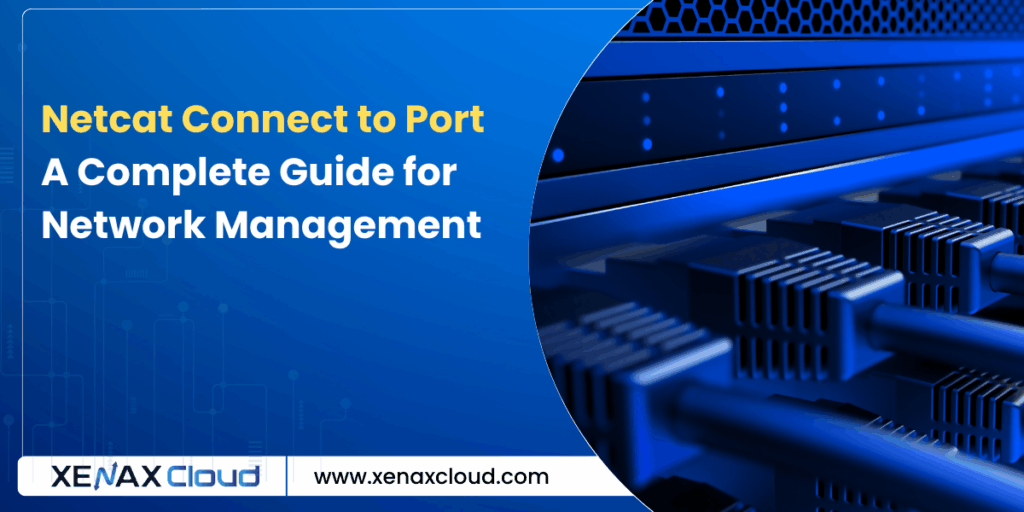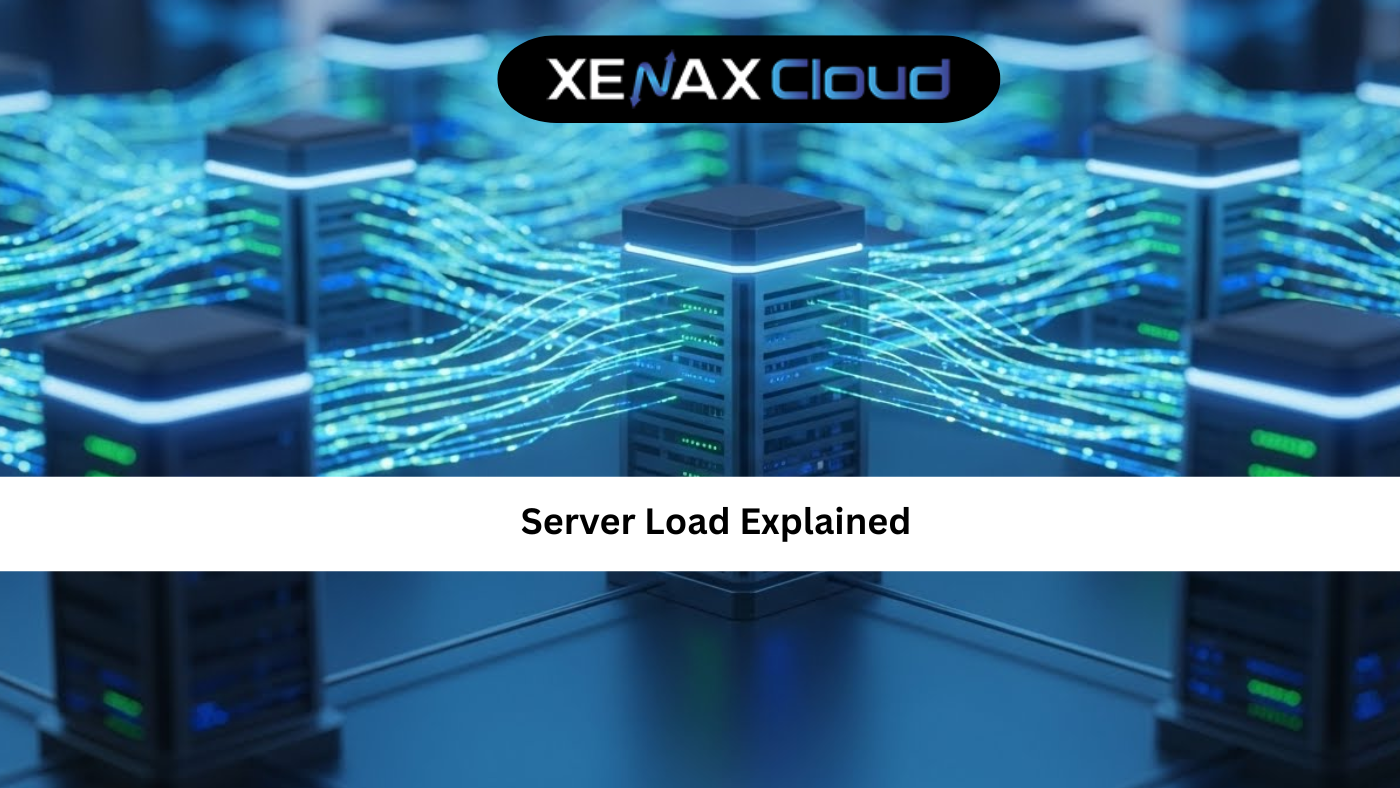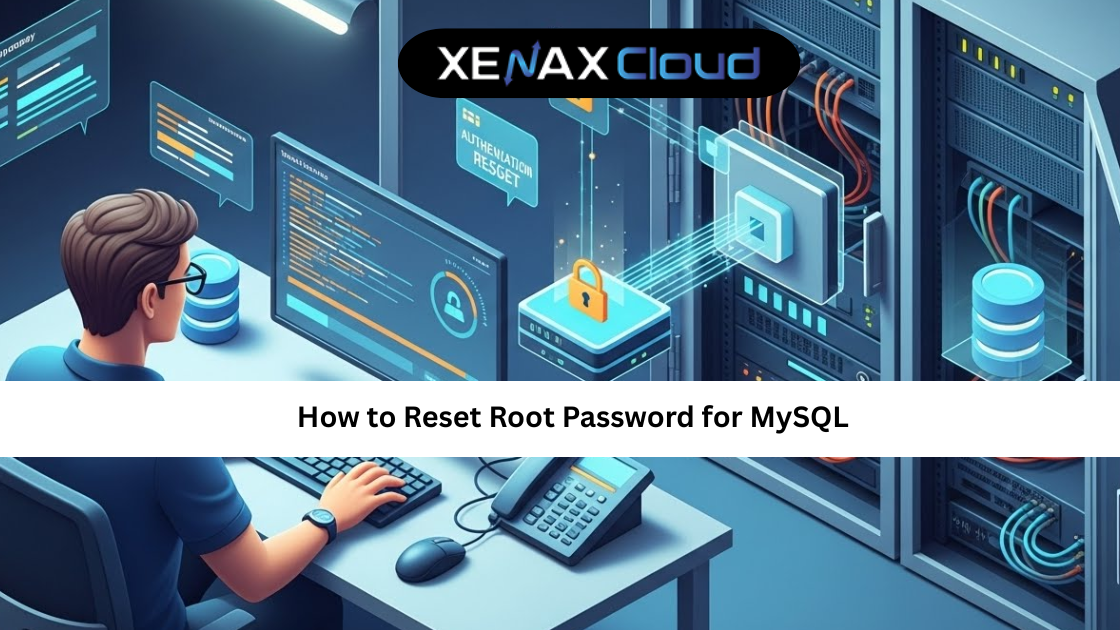Hey, developers, IT pros, and business owners in India, USA, UAE, UK, Germany, Japan, Canada, Switzerland, France, and beyond! The global digital economy is booming, with India’s digital market projected to hit $1 trillion by 2030 (per NASSCOM) and the global cloud computing market expected to reach $1.6 trillion by 2030 (per Grand View Research). Whether you’re managing a SaaS platform in Mumbai, a fintech app in Dubai, or a gaming server in Tokyo, mastering netcat connect to port is essential for secure, efficient network management. With cyberattacks costing Indian businesses ₹2,500 crore annually (per PwC 2024) and strict regulations like India’s DPDP Act, tools like Netcat (nc listen on port, netcat listen port) ensure reliable communication and diagnostics on servers.
Why does this matter? Netcat, often called the “Swiss Army knife” of networking, allows you to listen, connect, and transfer data across ports, making it a must-have for debugging, testing, or securing applications. In this 3000-word guide, we’ll dive into netcat connect to port, explore netcat listen port and nc listen on port, and show how XenaxCloud’s solutions—like VPS and dedicated servers—empower businesses in India, USA, UAE, UK, Germany, Japan, Canada, Switzerland, France, and globally. Let’s get started and unlock the power of Netcat!
What is Netcat Connect to Port?
Netcat connect to port refers to using the Netcat (nc) command-line tool to establish a connection to a specific port on a server or device, enabling data transfer, debugging, or network testing. Netcat can also listen on a port (netcat listen port or nc listen on port) to accept incoming connections. This lightweight, open-source tool is widely used for network diagnostics, file transfers, and even basic chat servers on Linux or Windows servers like XenaxCloud’s VPS.
- Key Features:
- Connect to any TCP/UDP port for testing or data transfer.
- Listen on ports to accept incoming connections.
- Supports both Linux and Windows environments.
- Lightweight, with minimal resource usage.
- Enhances security with proper configuration on XenaxCloud’s dedicated servers.
Why Businesses Need Netcat Connect to Port
Businesses in India, USA, UAE, UK, Germany, Japan, Canada, Switzerland, France, and global markets use netcat connect to port for:
- Network Debugging: Identify connectivity issues quickly.
- Data Transfer: Move files securely across servers.
- Security Testing: Simulate network attacks to assess vulnerabilities.
- Compliance: Ensure secure connections for DPDP Act and GDPR.
- Cost Efficiency: Free, open-source tool reduces expenses.
XenaxCloud’s VPS and Indian RDP make Netcat easy to deploy for global teams.
Benefits of Netcat Connect to Port
Here’s why netcat connect to port is essential for your business:
Network Diagnostics
- Why It Matters: Quickly test if ports are open or services are running.
- Advantage: Reduces downtime by identifying issues fast.
- Use Case: Debugging a Mumbai-based e-commerce platform’s connectivity.
- XenaxCloud Advantage: VPS with pre-installed Netcat.
Secure Data Transfer
- Why It Matters: Move files or data securely between servers.
- Advantage: Faster than SCP for small files.
- Use Case: Transferring logs for a Dubai fintech app.
- XenaxCloud Advantage: Secure dedicated servers with Imunify360.
Port Scanning
- Why It Matters: Identify open ports for security audits.
- Advantage: Helps prevent unauthorized access.
- Use Case: Securing a Tokyo gaming server.
- XenaxCloud Advantage: VPS with firewall support.
Lightweight Tool
- Why It Matters: Minimal resource usage on servers.
- Advantage: Runs efficiently on low-spec VPS plans.
- Use Case: Testing connectivity on a Bangalore startup’s server.
- XenaxCloud Advantage: Affordable VPS starting at ₹500/month.
Compliance Support
- Why It Matters: Secure connections ensure DPDP Act compliance.
- Advantage: Encrypts data transfers with proper setup.
- Use Case: Managing customer data for a UK-based retailer.
- XenaxCloud Advantage: Compliant dedicated servers.
How to Use Netcat Connect to Port with XenaxCloud
Here’s a step-by-step guide to using netcat connect to port and netcat listen port on XenaxCloud’s VPS or dedicated servers.
Step 1: Choose a Hosting Plan
- VPS Plans:
- Entry-Level: 1 vCPU, 2GB RAM, 50GB SSD, ₹500/month.
- Mid-Tier: 2 vCPUs, 8GB RAM, 100GB NVMe SSD, ₹2,000/month.
- High-End: 4 vCPUs, 16GB RAM, 200GB NVMe SSD, ₹5,000/month.
- Provider: XenaxCloud’s VPS.
- Dedicated Server Plans:
- Entry-Level: Intel Xeon E5, 16GB RAM, 1TB NVMe SSD, 10TB bandwidth, ₹6,000/month.
- Mid-Tier: Intel Xeon E5, 32GB RAM, 2TB NVMe SSD, 20TB bandwidth, ₹12,000/month.
- High-End: Dual Intel Xeon, 64GB RAM, 4TB NVMe SSD, 50TB bandwidth, ₹25,000/month.
- Provider: XenaxCloud’s dedicated servers.
Step 2: Install Netcat
- On Linux (Ubuntu):
sudo apt update sudo apt install netcat - On Windows (via PowerShell or WSL):
sudo apt install netcat-openbsd - Use Case: Installing Netcat on a XenaxCloud VPS.
Step 3: Listen on a Port
Use netcat listen port or nc listen on port to accept incoming connections.
- Command:
nc -l 12345 - Explanation: Listens on port 12345 for incoming connections.
- Use Case: Setting up a test server for a Mumbai SaaS app.
- XenaxCloud Advantage: Use Indian RDP for GUI-based management.
Step 4: Connect to a Port
Use netcat connect to port to establish a connection to a server.
- Command:
nc 192.168.1.10 12345 - Explanation: Connects to port 12345 on the server at 192.168.1.10.
- Use Case: Testing connectivity for a Dubai-based API server.
- XenaxCloud Advantage: Low-latency VPS for fast connections.
Step 5: Transfer Files with Netcat
- On Receiver (Listen):
nc -l 12345 > output.txt - On Sender (Connect):
nc 192.168.1.10 12345 < input.txt - Use Case: Transferring logs between servers for a Tokyo gaming platform.
- XenaxCloud Advantage: Secure dedicated servers for file transfers.
Step 6: Secure and Optimize
- Enable Imunify360: XenaxCloud’s security suite for malware and DDoS protection.
- Set Up Firewall:
sudo ufw allow 12345 sudo ufw enable - Monitor: Use tools like
netstatto track connections:netstat -tuln | grep 12345 - Backups: Set up automated backups for DPDP Act compliance.
- Use Case: Securing Netcat connections for a UK-based retailer.
- XenaxCloud Advantage: Secure VPS with Imunify360.
This guide ensures you can master netcat connect to port with XenaxCloud’s hosting.
Common Use Cases for Netcat Connect to Port
Here are practical applications of netcat listen port and nc listen on port:
- Port Testing:
- Test if a service (e.g., web server) is running:
nc -zv 192.168.1.10 80 - Use Case: Checking HTTP connectivity for an e-commerce site.
- Test if a service (e.g., web server) is running:
- Chat Server:
- Create a basic chat server:
nc -l 12345 - Connect from another terminal:
nc localhost 12345 - Use Case: Internal communication for a Bangalore startup.
- Create a basic chat server:
- File Transfer:
- Send logs or backups securely.
- Use Case: Transferring data for a Dubai fintech app.
- Port Scanning:
- Scan for open ports:
nc -zv 192.168.1.10 1-1000 - Use Case: Security audit for a Tokyo server.
- Scan for open ports:
- Debugging:
- Test API endpoints or database connections.
- Use Case: Debugging a SaaS app on XenaxCloud’s VPS.
Cost of Hosting for Netcat Connect to Port
XenaxCloud offers affordable hosting to support netcat connect to port:
- Shared Hosting:
- Cost: ₹149/month (shared hosting).
- Use Case: Testing small network scripts.
- VPS Hosting:
- Entry-Level: ₹500–₹2,000/month (1 vCPU, 2GB RAM, 50GB SSD).
- Mid-Tier: ₹2,000–₹5,000/month (2 vCPUs, 8GB RAM, 100GB NVMe).
- High-End: ₹5,000–₹10,000/month (4 vCPUs, 16GB RAM, 200GB NVMe).
- Provider: XenaxCloud’s VPS.
- Dedicated Servers:
- Entry-Level: ₹6,000/month (Intel Xeon E5, 16GB RAM, 1TB NVMe SSD, 10TB bandwidth).
- Mid-Tier: ₹12,000/month (Intel Xeon E5, 32GB RAM, 2TB NVMe SSD, 20TB bandwidth).
- High-End: ₹25,000/month (Dual Intel Xeon, 64GB RAM, 4TB NVMe SSD, 50TB bandwidth).
- Provider: XenaxCloud’s dedicated servers.
- Domains: ₹500–₹2,000/year (domains).
- Add-Ons: ₹500–₹2,000/month for Imunify360, CDN, or extra IPs.
XenaxCloud’s hosting ensures cost-effective netcat connect to port solutions.
Best Practices for Netcat Connect to Port
- Secure Connections: Use SSH tunnels for encrypted Netcat transfers:
ssh -L 12345:localhost:12345 user@remote-server - Restrict Ports: Limit open ports with
ufwor Windows Firewall. - Monitor Usage: Track connections with
netstatorss:ss -tuln - Backup Data: Automate backups for DPDP Act compliance.
- Use XenaxCloud’s Tools: Leverage Indian RDP for GUI-based management.
Challenges and Solutions
- Security Risks: Open ports can be exploited. Solution: Use XenaxCloud’s Imunify360 and firewalls.
- Technical Complexity: Netcat requires command-line knowledge. Solution: Use Indian RDP for GUI tools.
- Compliance: DPDP Act requires secure data handling. Solution: Use XenaxCloud’s dedicated servers.
- Performance Issues: High-latency connections slow transfers. Solution: Choose XenaxCloud’s VPS for low-latency hosting.
- Downtime Risks: Network issues disrupt connections. Solution: XenaxCloud’s 99.99% uptime ensures reliability.
Integrating Netcat Connect to Port with XenaxCloud’s Hosting Solutions
XenaxCloud’s hosting plans enhance netcat connect to port:
Shared Hosting
- Best For: Small network scripts or testing.
- Features: cPanel, free SSL, ImunifyAV.
- Cost: ₹149/month (shared hosting).
- Use Case: Testing Netcat scripts.
VPS Hosting
- Best For: Flexible network management.
- Features: Scalable resources, Linux/Windows support.
- Cost: ₹500–₹5,000/month (VPS).
- Use Case: Running a Netcat-based chat server.
Dedicated Servers
- Best For: High-traffic or compute-intensive apps.
- Features: Global data centers, Imunify360.
- Cost: ₹6,000–₹25,000+/month (dedicated servers).
- Use Case: Port scanning for enterprise apps.
Indian RDP
- Best For: Non-technical users managing servers.
- Features: GUI access for Netcat configuration.
- Use Case: Managing netcat listen port remotely (Indian RDP).
Reseller Hosting
- Best For: Agencies managing client apps.
- Features: White-label hosting, cPanel for clients.
- Use Case: Hosting client network tools (reseller hosting).
XenaxCloud’s global data centers ensure DPDP Act and GDPR compliance.

FAQs
What is Netcat connect to port?
Netcat connect to port uses the Netcat tool to connect to a server’s port for data transfer or testing. XenaxCloud’s VPS supports seamless Netcat usage.
How does Netcat listen port work?
Netcat listen port allows a server to accept incoming connections on a specified port. XenaxCloud’s dedicated servers ensure reliable listening.
Why use Netcat for network management?
Netcat connect to port enables diagnostics, file transfers, and security tests. XenaxCloud’s VPS offers low-latency hosting for Netcat.
Is Netcat connect to port secure?
Yes, with SSH tunnels and Imunify360. XenaxCloud’s VPS ensures DPDP Act compliance.
What hosting supports Netcat connect to port?
XenaxCloud’s VPS, dedicated servers, and Indian RDP support Netcat operations.
Conclusion
Mastering netcat connect to port empowers businesses in India, USA, UAE, UK, Germany, Japan, Canada, Switzerland, France, and globally to manage networks efficiently, debug connectivity, and secure data transfers. Whether you’re using netcat listen port or nc listen on port on XenaxCloud’s VPS, dedicated servers, or Indian RDP, you’ll get reliable, cost-effective solutions. Ready to streamline your network management? Explore XenaxCloud’s VPS, dedicated servers, or shared hosting today and boost your digital operations! Questions? Contact XenaxCloud’s support team now at 03:30 PM IST on September 22, 2025.






